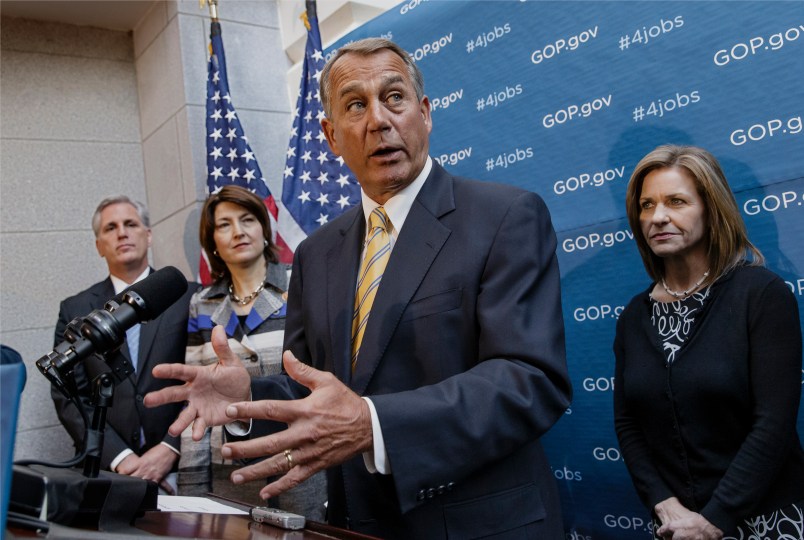The Republican-led House voted Tuesday to delay Obamacare’s individual mandate for one year, even though the enrollment period for the year is nearly over and the impact of the bill would be significantly reduced.
The final vote was 250-160. Twenty-seven Democrats joined all but one Republican in voting to delay by one year the health care law’s requirement that uninsured Americans get covered or pay a tax penalty of at least $95 in the first year.
It was the House’s 50th vote to repeal or dismantle the law since Republicans took over the chamber in 2011. The bill, sponsored by Rep. Lynn Jenkins (R-KS), the vice chair of the GOP conference, is a nonstarter in the Democratic-led Senate. Republicans saw the measure as ripe for politicking ahead of the November congressional elections, given the unpopularity of the individual mandate.
Politics aside, the timing of the vote made little sense. The open enrollment period for Obamacare, which began in October 2013, will wrap up in a few weeks, at the end of March. More than 4 million have already signed up, according to the Obama administration. And so the impacts of the GOP bill are greatly reduced because Americans have operated under the assumption of a mandate penalty for five out of six months of enrollment.
Last September, the Congressional Budget Office found that delaying the mandate by one year would save the federal government $35 billion over a decade (due to fewer subsidies doled out on the insurance exchanges and fewer Medicaid sign-ups). An updated report this week slashes that number to $9 billion.
“The effects of H.R. 4118 in 2014 would be less than they would be if the legislation had been enacted before October 2013 when the open enrollment period for obtaining health insurance through exchanges began,” CBO concluded, observing that “some people who would not have signed up for health insurance coverage without the mandate will keep coverage for which they will have signed up by the time the penalty would be removed.”
The House floor debate prior to the vote featured a litany of tired talking points.










